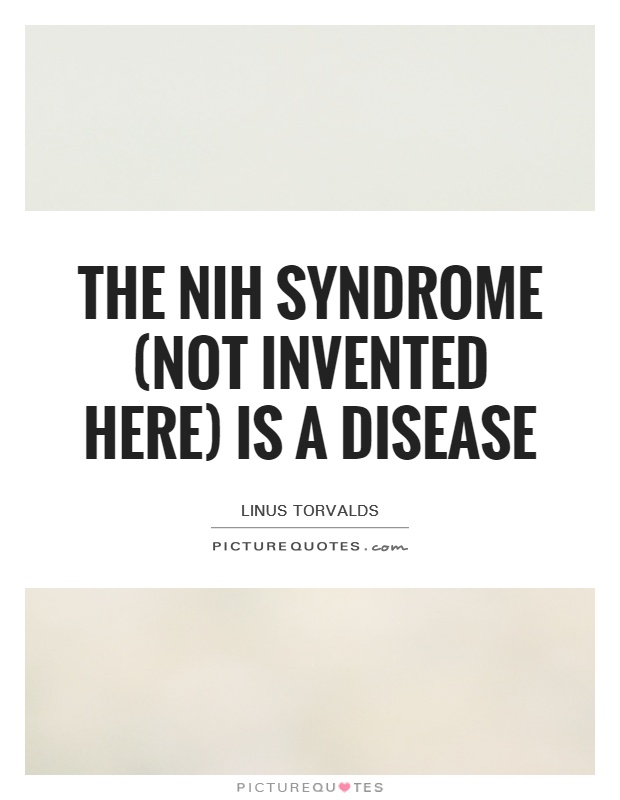The NIH syndrome (Not Invented Here) is a disease

The NIH syndrome (Not Invented Here) is a disease
Linus Torvalds, the creator of the Linux operating system, is no stranger to the NIH syndrome (Not Invented Here). This phenomenon, often referred to as a disease in the world of technology and innovation, is characterized by a reluctance to adopt or incorporate external ideas, technologies, or solutions. Instead, individuals or organizations afflicted with the NIH syndrome prefer to develop their own solutions, even if existing ones are readily available and proven to be effective.In the case of Linus Torvalds, the NIH syndrome played a significant role in the development of Linux. Torvalds famously rejected the existing Unix operating system, which was widely used at the time, in favor of creating his own operating system from scratch. This decision was driven by a desire to have complete control over the development process and to create a system that met his specific needs and preferences.
While Torvalds' decision to create Linux from scratch ultimately led to the development of a highly successful and influential operating system, it also highlights the potential pitfalls of the NIH syndrome. By rejecting existing solutions in favor of developing their own, individuals or organizations may miss out on valuable opportunities for collaboration, innovation, and efficiency.
The NIH syndrome can also lead to a lack of diversity and perspective in problem-solving. By only relying on internal resources and ideas, individuals or organizations may limit their ability to consider alternative approaches or solutions that could ultimately lead to better outcomes.












 Friendship Quotes
Friendship Quotes Love Quotes
Love Quotes Life Quotes
Life Quotes Funny Quotes
Funny Quotes Motivational Quotes
Motivational Quotes Inspirational Quotes
Inspirational Quotes